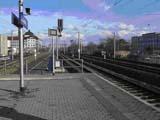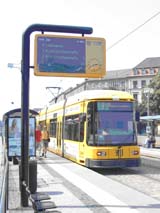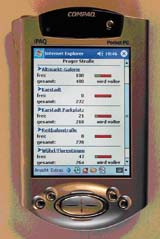Fraunhofer Rail's planning range in public passenger services operates on several different levels:
- At political level the focus is on long-term strategic planning. Fraunhofer Rail creates supply-and-demand scenarios at European level, which include the assessment and forecast of the social costs of means of transport and scenarios featuring technological, social and institutional trends in the traffic sector.
- For planning in transport companies, the planning chain is supported by the skills of Fraunhofer Rail, which include not only strategic network planning and tender planning but also operative issues involving vehicle circulation, personnel deployment and signposting concepts.
- From the user's point of view, the focus is on the planning of the journey in terms of its continuity. Beginning with the passenger's desired journey, it includes timetable information, ticket purchase, passenger care and smooth connections. The experts at Fraunhofer Rail analyze inhibition thresholds in compound journeys, investigate changes of modes of transport during their course, and optimize connections in public transport timetables.
Cross-references to other modes of transport are also of great significance in planning. The services offered by Fraunhofer Rail include the investigation of reasons for changing means of transport and, by the same token, reasons for not doing so, concepts for linking individual motorized traffic and public transport (P+R concepts, car-park information systems), and solutions for intermodal timetable information.
 Fraunhofer-Allianz Verkehr
Fraunhofer-Allianz Verkehr

